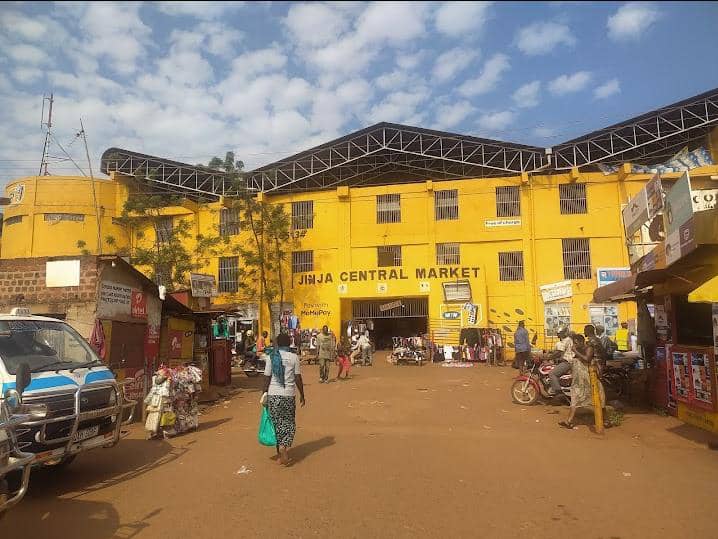Jinja City streets have always been overwhelmed with vendors, buyers, loading and offloading vans, hawkers, street beggars, sex workers among others who meet to transact trade.
Despite the City’s enormous public markets, including Jinja central, Napier, Madhivanhi, Mpumudde, Lubas, Walukuba and the foods Ambercourt market, vendors had stormed streets to exhibit their trade items.
Streets like Alidina, Nizamu, Alice Mulooki, Clive road East, Oboja among others had been turned into ‘exhibition grounds’. This has caused trade disorder and congestion, attracting street robbery. However, Jinja City council authorities, police and other security operatives have embarked on creating trade order evicting all street vendors from streets.
Speaking to Busoga Today News, the City’s mouse-piece, Rajab Kitto, said the exercise is purposed for dis-congesting streets and ensuring trade order in Jinja City.
Kitto said that it’s the city council’s usual routine to remove traders on streets because they are not supposed to sell from streets adding that “we must ensure that streets are free and vendors should go back to markets. We have many markets in town which are actually free, why selling on streets?”
“Traders have their gazetted places to do their businesses from and they are markets. We are ensuring they occupy their empty places,” he added.
According to him, the operation is not only ending in the main city streets, but will also extend to the suburbs of Bugembe, Mafubira, Namulesa provided they are trading areas.
“At the moment there is no any penalty. We are confiscating their merchandise but with time, when they keep on not adhering with directives, they will be arrested and prosecuted. There’s a law that can punish such people,” he noted.
Jinja central market chairperson, Mr. Henry Mugimba, condemned street vending, saying there’s a lot of disorderly among traders. He attributed it to some traders ‘narrow thinking’, who think buyers can only get them on streets.
Mugimba asserted that the size of Jinja central market that accommodates over six thousand (6000) people, is enough to those on streets. He called upon street colleagues to join the crew inside the market.
“We currently have six thousand five hundred (6500) registered traders with facilities in the market but you find that we are less than one thousand (1000) because of the liberty given to people to carry out street vending. Even before the construction of Jinja central market, these people were not on roads,” said Mugimba.
The chairperson revealed that Jinja central market recently was collecting 60 million shillings from traders per month but street vending has minimized it to 20 million.
“At a certain point, we were collecting 60 million as monthly tax collection but now we are collecting less than 20 million. Remember we use electricity for 12 million, clean the market with 6 million, water and other administrative costs,” he noted.
“The remaining amount is used by the city mafias who develop bogus and silly tenders and collect money from street vendors. How can you collect tax from someone on a street and even give them a receipt, it means you have gazetted the place,” he wondered.
Mugimba added saying that the operation will be useless if the city council doesn’t take action to ‘Karibu Karibu’ area (meant for cooked food stuffs), where instead vendors after being chased from streets are displaying their items from. When these people are still there, they are our big problem and Jinja city council will be have done nothing.”
Jinja City clerk, Edward Lwanga, insisted that the operation is to ensure trader order in town, being that trade is carried markets.
“It’s putting people where they are supposed to be but still do business. Some people are complaining of the alternative but we communicated this earlier even before we told them to get off the roads, saying they should go back to the markets,” Lwanga added that in case the traders get challenges, for instance, if market leaders reject them when there’s space, then they need to get back to us and we make sure they are absorbed in the market.
According to Lwanga, people running shops, restaurants, those inside the market are paying trade license, rent and a lot of income tax, saying that if they are not protected, authorities will not be fair.
He clarified that despite the too much force they are using, no people’s property has been destroyed and no one has been beaten in the exercise.
Jinja City streets are currently occupied by men in uniform and some other enforcement officers manning to bring violators to book. The operation, however, has directly affected boda-boda riders and taxis with no official stages who cause commotion in town.




